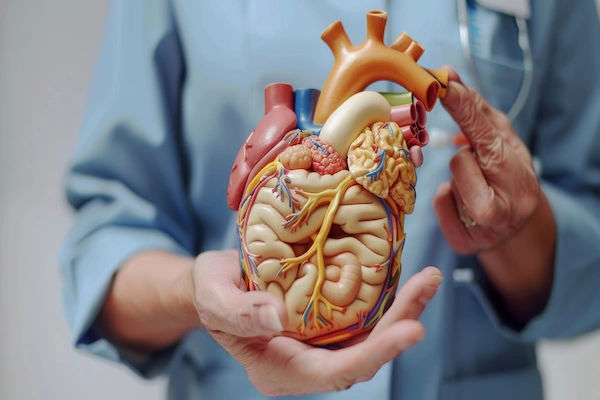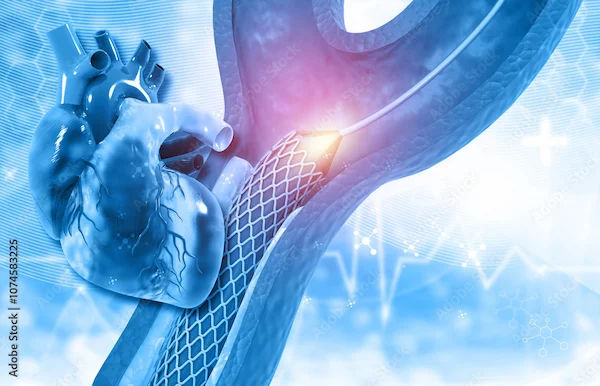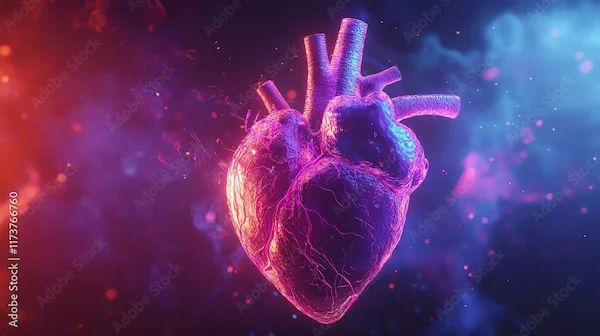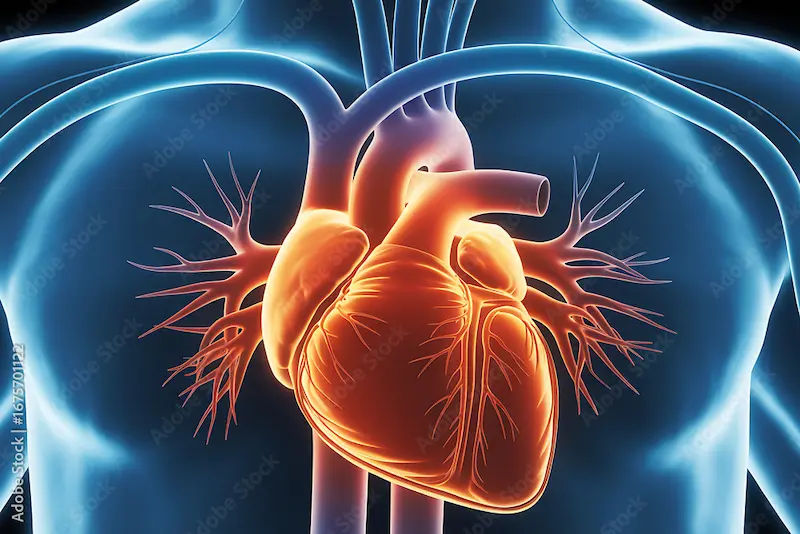Signs Of Do You Know The Warning Signs And Signs And Of Congestive Heart Failure
Recognize the early warning signs of congestive heart failure. Learn to identify key symptoms like shortness of breath, fatigue, and swelling to seek timely medical attention and improve your health outcomes.

.webp?tr=q-80,f-webp,w-350,dpr-2,c-at_max 700w)
Congestive heart failure (CHF) sounds like a terrifying, final diagnosis. However, it's crucial to understand that it doesn't mean your heart has stopped working. Instead, it signifies that your heart muscle isn't pumping blood as well as it should to meet your body's needs. This inefficiency causes blood and fluid to back up into your lungs, liver, abdomen, and lower extremities, leading to a range of symptoms that are often mistaken for normal signs of aging or being out of shape. Recognizing the warning signs of congestive heart failure early can be a lifesaving skill, allowing for prompt medical intervention that can dramatically improve your quality of life and long-term outlook. This guide will walk you through the 15 most common symptoms, from the subtle early whispers to the advanced red flags you should never ignore.
What is Congestive Heart Failure, Really?
It's About Inefficiency, Not Complete Failure
The term "failure" is misleading. Think of it more as your heart struggling to keep up with its workload. A healthy heart pumps oxygen-rich blood efficiently to every organ. In CHF, the heart's pumping power is weakened (systolic failure) or it becomes stiff and cannot fill with blood properly (diastolic failure). This causes circulation to slow down, and blood returning to the heart gets backed up in the veins, forcing fluid into bodily tissues. This process, called "congestion," is where the condition gets its name and is the root cause of most symptoms of CHF.
The Most Common Early Warning Signs of CHF
Early detection is paramount. These initial signs of heart failure are often mild but progressively worsen over time.
Shortness of Breath (Dyspnea): The Hallmark Symptom
- This is the most common complaint. It may initially occur only during physical activity but can progress to happening even at rest. It's caused by fluid leaking into the air sacs of the lungs (pulmonary edema), making it difficult to breathe.
Orthopnea: Breathlessness While Lying Down
- Do you find yourself needing to prop up with extra pillows to breathe comfortably at night? This specific type of shortness of breath that improves when sitting upright is a classic sign of worsening heart failure. Gravity redistributes fluid in the body when you lie down, increasing congestion in the lungs.
Paroxysmal Nocturnal Dyspnea: Waking Up Gasping
This is a severe form of orthopnea where a person awakens suddenly 12 hours after falling asleep, gasping for air and often coughing or wheezing. It can be a terrifying experience and is a major red flag that requires immediate medical attention.
Persistent Fatigue and Weakness
- When your heart can't pump enough oxygen-rich blood to major organs and muscles, your body diverts it away from less crucial areas, like your limbs, and prioritizes the brain and heart. This can leave you feeling constantly tired, weak, and unable to perform everyday activities like climbing stairs or carrying groceries.
Swelling (Edema) in Legs, Ankles, and Feet
- As blood flow out of the heart slows, blood returning to the heart through the veins backs up, causing fluid to build up in the tissues. Edema caused by CHF is often bilateral (affecting both legs) and may leave a dimple (pit) when you press on the skin for a few seconds. This is a key sign of rightsided heart failure.
Consult a General Physician for the best advice
Progressive Symptoms as CHF Worsens
If the early signs are ignored, the condition can progress, leading to more severe and debilitating symptoms.
Persistent Coughing or Wheezing
- A constant cough that produces white or pink, bloodtinged mucus is a sign of significant fluid buildup in the lungs. The wheezing can often be mistaken for asthma, but it's directly related to cardiac congestion.
Rapid Weight Gain from Fluid Retention
- Monitoring your weight is critical. A sudden weight gain of 23 pounds in a day or 5 pounds in a week is almost certainly due to fluid retention and not fat gain. This is a clear indicator that your CHF is not well managed.
Increased Heart Rate or Heart Palpitations
- To compensate for its weaker pumping power, your heart may beat faster. You might feel this as a racing heart (tachycardia) or as fluttering, pounding, or skipping beats (palpitations).
Confusion and Impaired Thinking
- Changing levels of certain substances in the blood, such as sodium, due to poor blood flow can cause
- confusion, memory loss, and feelings of disorientation. This is often more noticeable in elderly patients with CHF.
Less Common But Critical Red Flags
Abdominal Swelling and Loss of Appetite
- Fluid backup can also occur in the liver and intestines, leading to abdominal pain, swelling (ascites), a feeling of fullness, and nausea. This can cause a significant loss of appetite and is another sign of rightsided heart failure.
Chest Pain (If Associated with a Heart Attack)
- While not a direct symptom of CHF itself, chest pain (angina) can be the underlying cause of heart failure if a heart attack damages the heart muscle. Any new or unexplained chest pain requires immediate emergency care.
When to Seek Immediate Medical Attention?
Do not wait. Seek emergency care if you or someone you know experiences:]
- Severe shortness of breath that doesn't improve with rest.
- Chest pain.
- Fainting or severe weakness.
- A rapid or irregular heartbeat associated with shortness of breath or fainting.
- Coughing up pink, foamy mucus.
If your symptoms are less severe but persistent, it is still vital to get a professional evaluation. If you experience persistent swelling, fatigue, or shortness of breath beyond what is normal for you, consult a doctor online with Apollo24|7 for further evaluation. Early diagnosis can make a world of difference.
Conclusion
Understanding the warning signs and symptoms of congestive heart failure empowers you to take control of your health. While this list may seem daunting, remember that not everyone will experience all symptoms, and their severity can vary greatly. The central message is to listen to your body. What might feel like "just getting older" could be your heart sending a distress signal. Ignoring these signs can allow the condition to progress, making treatment more difficult. Modern medicine offers a wealth of treatments—from medications and lifestyle changes to devices and surgery—that can effectively manage CHF, reduce symptoms, and help you live a longer, more active life. Your first and most important step is recognition and action. If your condition does not improve after noticing these warning signs, book a physical visit to a doctor with Apollo24|7 for a comprehensive cardiac evaluation.
Consult a General Physician
Consult a General Physician

Dr. Rajib Ghose
General Physician/ Internal Medicine Specialist
25 Years • MBBS
East Midnapore
VIVEKANANDA SEBA SADAN, East Midnapore

Dr Divya Lekha Gunta
General Practitioner
10 Years • MBBS, MD (Pathology)
Visakhapatnam
Apollo 24|7 Clinic - Andhra Pradesh, Visakhapatnam

Dr. Vijay Kumar Shrivas
General Physician/ Internal Medicine Specialist
20 Years • MBBS, DNB - General Medicine Internal Medicine
Bilaspur
Apollo Hospitals Seepat Road, Bilaspur
(75+ Patients)
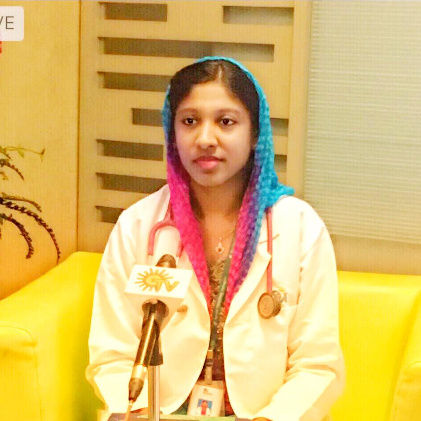
Dr. Afreen Banu Khan
General Physician/ Internal Medicine Specialist
12 Years • MBBS, DDM (Diab). FCC (Cardio)
Chennai
Apollo Speciality Hospitals OMR, Chennai

Dr Rajashree Dhongade
General Physician/ Internal Medicine Specialist
9 Years • MD.Medicine,Fellowship in Critical Care Medicine (MUHS)
Nashik
Apollo Hospitals Nashik, Nashik
(25+ Patients)
Consult a General Physician for the best advice

Dr. Rajib Ghose
General Physician/ Internal Medicine Specialist
25 Years • MBBS
East Midnapore
VIVEKANANDA SEBA SADAN, East Midnapore

Dr Divya Lekha Gunta
General Practitioner
10 Years • MBBS, MD (Pathology)
Visakhapatnam
Apollo 24|7 Clinic - Andhra Pradesh, Visakhapatnam

Dr. Vijay Kumar Shrivas
General Physician/ Internal Medicine Specialist
20 Years • MBBS, DNB - General Medicine Internal Medicine
Bilaspur
Apollo Hospitals Seepat Road, Bilaspur
(75+ Patients)

Dr. Afreen Banu Khan
General Physician/ Internal Medicine Specialist
12 Years • MBBS, DDM (Diab). FCC (Cardio)
Chennai
Apollo Speciality Hospitals OMR, Chennai

Dr Rajashree Dhongade
General Physician/ Internal Medicine Specialist
9 Years • MD.Medicine,Fellowship in Critical Care Medicine (MUHS)
Nashik
Apollo Hospitals Nashik, Nashik
(25+ Patients)
More articles from Heart Attack
Frequently Asked Questions
What is the life expectancy for someone with congestive heart failure?
Life expectancy varies widely and has improved significantly with modern treatments. It depends on age, overall health, the severity of the condition, and how well a patient responds to treatment and lifestyle changes. Many people live well for many years after diagnosis with proper management.
Can congestive heart failure be reversed?
While the damage to the heart muscle is often permanent, the symptoms and progression of CHF can be effectively managed, controlled, and in some cases, the heart's function can be significantly improved. Early treatment is key to the best possible outcome.
What is the difference between a heart attack and heart failure?
A heart attack is a sudden event caused by a blockage in a coronary artery, cutting off blood supply to part of the heart muscle. Heart failure is a chronic, progressive condition where the heart's pumping ability is weakened over time. A heart attack can be a cause of heart failure.
Are the symptoms of CHF in elderly patients different?
The symptoms are largely the same but can be more subtle and are often mistakenly attributed to aging. Confusion, dizziness, and fatigue might be more prominent than shortness of breath in very elderly patients.
What is the first line of treatment for congestive heart failure?
Treatment is multifaceted and almost always includes lifestyle changes (lowsalt diet, fluid management, exercise) and medications like ACE inhibitors, beta blockers, and diuretics ('water pills') to reduce the heart's workload and remove excess fluid.

